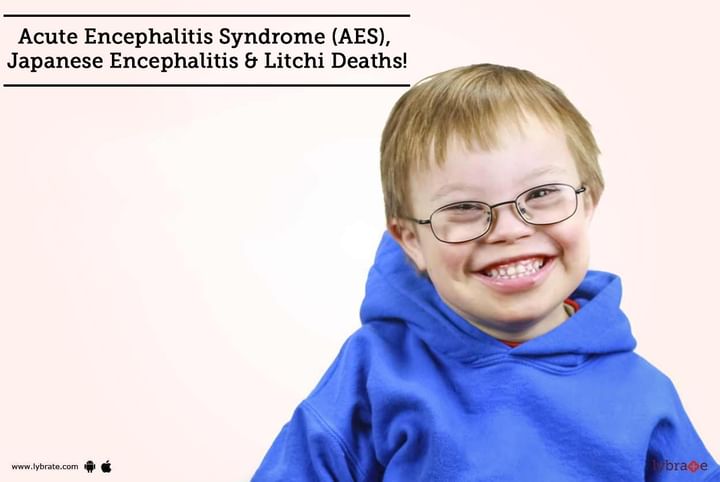Acute Encephalitis Syndrome (AES) - Know More About It!
Clinically, a case of AES is defined as a person of any age, at any time of year with the acute onset of fever and a change in mental status (including symptoms such as confusion, disorientation, coma, or inability to talk) and/or new onset of seizures (excluding simple febrile seizures). Most Common cause of AES is Japanese encephalitis and toxic encephalopathy.
There have also been cases of toxic encephalopathy (litchi deaths) in Muzaffarpur during the same season. outbreaks generally peak in June and continue until July, corresponding to the lychee harvesting period, which led to assertions of lychee or lychee orchard–associated AES. Lancet study done in 2014 found skipping evening meals and MCPG and hypoglycin toxins as a major cause of toxic encephalopathy. It recommended minimising litchi consumption, ensuring receipt of an evening meal and implementing rapid glucose correction for suspected illness.
Similar outbreaks in Bangladesh suggested the role of agrochemicals in its outbreak. the outbreak ended following the onset of the monsoon rains, which suggest that the toxin associated with the lychees was on their surface, rather than contained in the fruit. Acute exposures to organophosphate and carbamate pesticides in children accumulate acetylcholine at the autonomic ganglia resulting in hypertension, pallor, and hypoglycemia.48 This could explain why most of the case-patients fall ill between 2 am and 8 am when blood glucose reaches its lowest levels. This study was done in 2013 and published in ASTMH.
Japanese Encephalitis is a viral disease transmitted by the bite of infected female mosquitoes mainly belonging to Culex tritaeniorhynchus, Culex Vishnu and Culex pseudovishnui group. However, some other mosquito species also play a role in transmission under specific conditions.
Culex mosquito usually bites in the night and prefer to stay in irrigated rice fields or darker areas of the house during day time. It prefers cleaner water for breeding.
JE virus is primarily zoonotic which means it's transmitted from animal to human in its natural cycle and humans are an accidental dead-end host. It doesn't transmit from human to human. Symptoms usually appear after an incubation period of 5-14 days from the bite of an infected mosquito. JE virus is neurotropic primarily affects the central nervous system
JE virus infection presents with classical symptoms similar to any other virus causing encephalitis. JE virus infection may result in febrile illness of variable severity associated with neurological symptoms ranging from headache to meningitis or encephalitis. Symptoms can include headache, fever, neck stiffness, disorientation, coma, tremors, paralysis (generalized), hypertonia, loss of coordination, behaviour changes, altered sensorium. The prodromal stage may be abrupt (1-6 hours), acute (6-24 hours) or more commonly subacute (2-5 days)
In the acute encephalitic stage, symptoms noted in prodromal phase convulsions, alteration of the sensorium, behavioural changes, motor paralysis and involuntary movement supervene and focal neurological deficit is common. Usually lasts for a week but may prolong due to complications.
Amongst patients who survive, some lead to full recovery through steady improvement and some suffer from the stabilization of neurological deficit. The convalescent phase is prolonged and varies from a few weeks to several months.
Mild infections occur without apparent symptoms other than fever with headache. More severe infection is marked by quick onset, headache, high fever, neck stiffness, stupor, disorientation, coma, tremors, occasional convulsions (especially in infants) and spastic (but rarely flaccid) paralysis.
There are different investigations using CSF and blood samples. Antigen and antibody detection, PCR and viral cultures are different ways to diagnose JE.
Treatment is usually symptomatic but for prevention recommendations are:
- Personal protection against bites of infected mosquitoes like wearing full sleeve clothes, using mosquito repellents, mosquito nets etc.
- Prevent breeding of mosquito by regularly cleaning any breeding sites. Usually, Culex mosquitoes prefer cleaner water and irrigated rice fields for breeding.
- Vaccination. There are different vaccines available:- Live Attenuated SA-14-14-2 Vaccine, Inactivated Vero cell culture-derived SA 14-14-2 JE vaccine (JE-VC), (IXIARO® and JEEV®), Inactivated Vero cell culture-derived Kolar strain, 821564XY, JE vaccine (JENVAC®)
- Anticipatory preparedness: As it's seasonal outbreak accordingly public health facilities can be strengthened to respond efficiently and effectively. Vaccination can also be done among vulnerable groups residing in endemic areas.



+1.svg)
